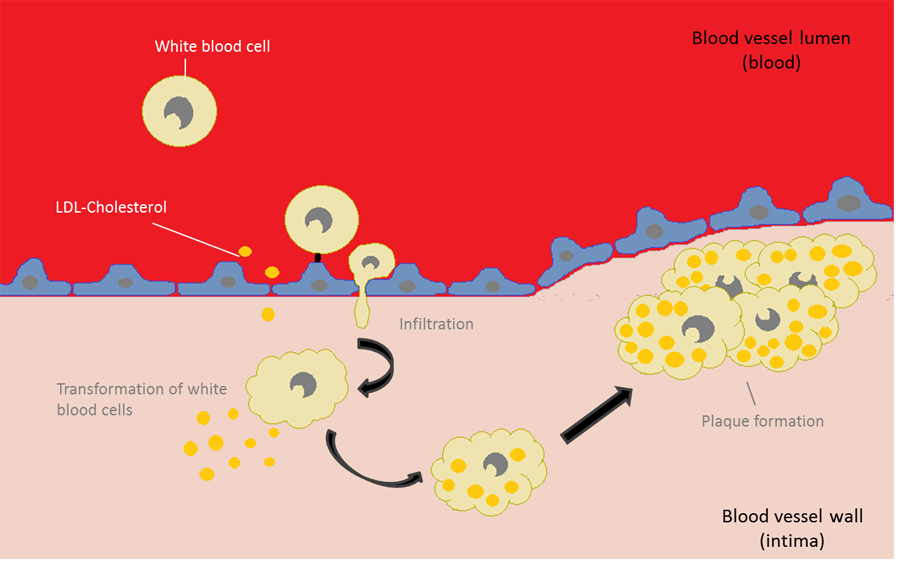Inflammation is an immune defense reaction that the body develops to respond to aggressions like infections (i.e. viral or bacterial), injuries or allergies. It involves immune cells, better known as white blood cells. The resulting physiological reaction (normal reaction of the organism) appears as redness, swelling, heat sensation, pain, and even malfunction of the impacted organ.
In the case of atherosclerosis, the entry of LDL cholesterol particles in the arterial wall plays the role of an aggressor and provokes a physiological inflammatory reaction (see figure). The white blood cells cross the arterial wall to absorb the LDL cholesterol particles in order to clean the wall. Once filled with cholesterol, the white blood cells agglomerate and form the plaque. Then, they release pro-inflammatory substances that increase the arterial wall permeability, allowing the entrance of new LDL cholesterol particles and white blood cells. A vicious circle is therefore initiated, and will favor plaque thickening. The more important the LDL cholesterol aggression, the larger the plaque will be and the more damage it will cause.

Mapping of the atherosclerosis plaque formation
